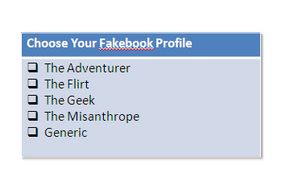Some people are online social butterflies, deftly managing to interact with hundreds of Facebook friends on a daily basis. To them, there's no challenge in wading through a dozen event invites, wishing a happy birthday to the appropriate people, responding to Wall posts and making the next move in one of the thousands of games permeating the site.
For the rest of us, Facebook can sometimes seem a little overwhelming. If you've got a lot of Facebook friends, you may find it impossible to keep up with everything. And if your friends are the sensitive type, you may give off the impression that you don't care about them. There's nothing quite like finding out a friend is in a tizzy because you didn't respond to an invite on Facebook to go bowling.
Advertisement
Then there are the people who'd rather never get on Facebook at all. As our culture embraces social networking sites and services, people begin to feel the pressure to participate. That might not be a big deal to everyone but some people just aren't that comfortable sharing information with others. How do you balance being a contributing member of society with reluctance to join the online social world?
The answer for people who have trouble maintaining a Facebook profile -- or those who wish to avoid it as much as possible -- may be Fakebook. It's a new Facebook application that responds to requests automatically and takes care of the everyday virtual housekeeping your profile needs to avoid drama. For people with a lot of Facebook friends, it takes the pressure out of responding to various invitations and status updates. For the shyer among us, Fakebook can provide the online interaction we're otherwise reluctant to do.
So what can Fakebook actually do?
Advertisement


